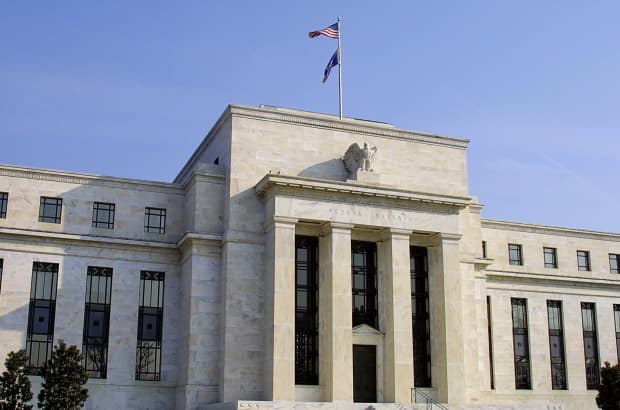This post was originally published on this site

Karen Bleier/Agence France-Presse/Getty Images
Unless the Federal Reserve starts hinting at higher benchmark interest rates, investors expect the vicious selloff in the U.S. Treasurys market on Monday to run out of steam.
“I think the market’s got the wrong end of this,” said Scott Clemons, chief investment strategist at Brown Brothers Harriman, in an interview.
In a tumultuous day that saw violent gyrations in all corners of Wall Street, the bond market came under particularly sharp pressure, following news that a vaccine candidate for COVID-19 developed by Pfizer and BioNTech was 90% effective in preventing the virus in a late-stage trial.
The 10-year Treasury note yield TMUBMUSD10Y, 0.964% soared 13.6 basis points to 0.957% on Monday, its biggest daily jump since mid-March. The benchmark maturity remains virtually unchanged from Monday’s levels, at last check. Bond prices move inversely to yields.
The positive vaccine development bolstered hopes that the U.S. economy could eventually make a robust recovery, even if the currently dire coronavirus case trajectory worsens.
But analysts said further selling in Treasurys likely would hinge on investors betting on the Fed to bring forward future rate hikes, an unlikely prospect as Fed Chairman Jerome Powell has emphasized that the central bank would keep doing everything in its power, including buying assets and holding rates near zero, to help ensure a successful recovery.
“The Fed is not going to be in a hurry to hike rates,” said Tom Graff, head of fixed income at Brown Advisory, in an interview.
Even if a full recovery is in clear sight, the prevailing view has been that inflation would need to make a sustained push beyond 2% for the Fed to act. And that remains a tall order, given that inflation rarely has tested the central bank’s target throughout the post-2008 expansion, the longest economic cycle in postwar history.
Traders in short-term funding markets, where investors can bet on the direction of the Fed’s interest-rate policy, also remain dovish.
The vaccine news did not significantly move eurodollar markets, suggesting traders expect the central bank to stay on hold with respect to raising rates until 2023.
Graff cautioned that much of Monday’s selloff was driven by a rise in inflation-adjusted interest rates, not stronger inflation expectations, the two components of a bond’s yield.
“In my mind, the only thing that causes the Fed to hike any time is higher inflation expectations,” he said.

